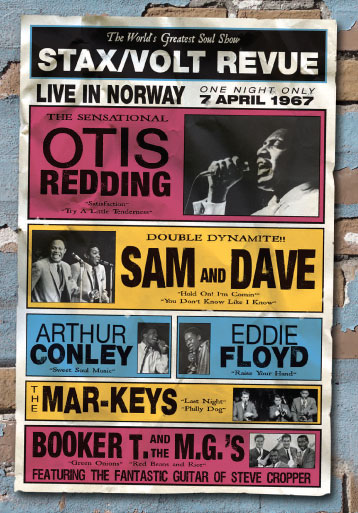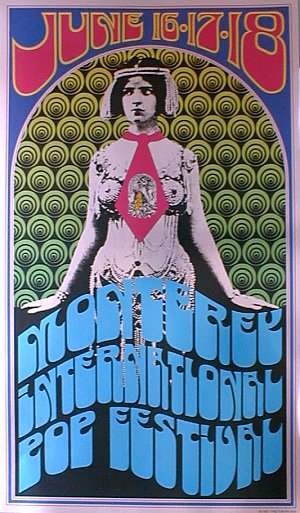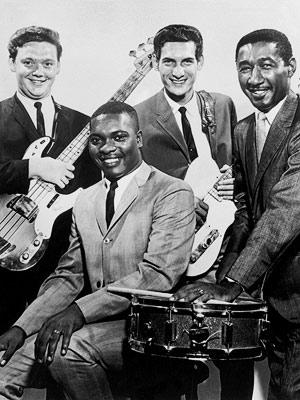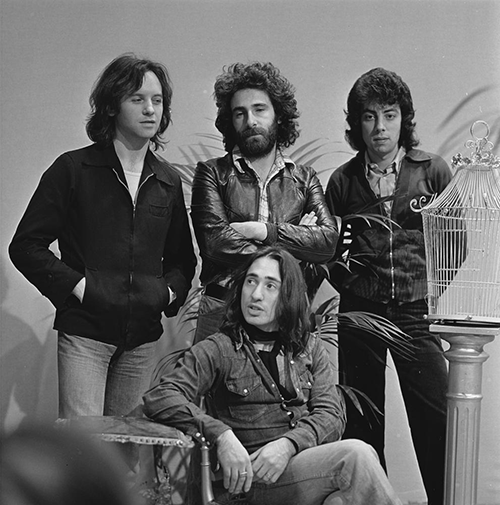Otis Redding — ‘(Sittin’ On) The Dock of the Bay’
 This week we’re starting a series of postings on spookily existential posthumous hits. You might not think that’s a genre unto itself, but I know of three such songs, humdingers each, memorable, moving and eerily prophetic.
This week we’re starting a series of postings on spookily existential posthumous hits. You might not think that’s a genre unto itself, but I know of three such songs, humdingers each, memorable, moving and eerily prophetic.
We’re going to start this week with Otis Redding’s great “(Sittin’ on) The Dock of a Bay”. I’ll keep you in suspense as to the identity of the other two.
Like all insecure males, I enjoy being flattered (“The way to a man’s heart is through his ego”), but when some nincompoop occasionally tells me that I know everything there is to know about music, I glow for just a short moment and then I cringe. (Maybe you could call that a glinge.) They couldn’t be more wrong. There’s a long and very impressive list of major artists about whom I know virtually nothing: Pink Floyd, Led Zeppelin, Genesis, Michael Jackson, Madonna, Lady Gaga, Justin Bieber. The list is endless. Country swing, Chicago blues, The Carter Family, Richard Strauss, Burl Ives. From the underwhelming Rolling Stone list “The 100 Greatest Artists of All Time”, I’ve never listened seriously to Bob Marley, U2, the Ramones, Nirvana, Prince, The Clash, David Bowie, Public Enemy, Patti Smith, Dr Dre, Funkmaster, Aerosmith, The Sex Pistols, Al Green, AC/DC, the Stooges, Eminem, N.W.A, Black Sabbath, Tupac Shakur, Guns ‘n Roses, Nine Inch Nails, Lynyrd Skynyrd, Roxy Music or Lee ‘Scratch’ Perry. Or, to tell the truth, Otis Redding.
 Until this week, that is. You see, there are SoTWs that I pretty much have up my sleeve. I admit that I do in fact know a song or two. But more often than not I do some research, both dedicated, careful listening to the artist’s oeuvre (gotta use some fancy words here to rehabilitate my reputation) and background reading.
Until this week, that is. You see, there are SoTWs that I pretty much have up my sleeve. I admit that I do in fact know a song or two. But more often than not I do some research, both dedicated, careful listening to the artist’s oeuvre (gotta use some fancy words here to rehabilitate my reputation) and background reading.
So I did know a very little bit about Memphis and Stax and Booker T & the MGs, and how R&B got a makeover and evolved into Soul.
Otis Redding (1941-67) was one of the most popular singers of The Day. At his peak, he was earning $35,000 a week for concerts. He is said to have sold more records in 1967 than Frank Sinatra and Dean Martin combined. The comparison is not arbitrary.
We think of 1967 as ‘The Summer of Love’, the year of The Beatles (“Sgt. Pepper’s Lonely Hearts Club Band” and “Magical Mystery Tour”), The Doors (“The Doors” and “Strange Days”), Jefferson Airplane (“Surrealistic Pillow” and “After Bathing at Baxter’s”), Love (“Forever Changes”), Cream (“Disraeli Gears”), The Rolling Stones (“Their Satanic Majesties Request”), The Who (“The Who Sell Out”), The Velvet Underground (“The Velvet Underground & Nico”), Procol Harum (“Procol Harum”), and The Jimi Hendrix Experience (“Are You Experienced?” and “Axis: Bold As Love”).
 In fact, if you look at the charts, the white boxer-short Republicans were still the main album buyers (top 3 sellers of the year were “Dr Zhivago”, “Sound of Music” and “A Man and a Woman”, followed by “More of the Monkees”, “Sgt Pepper” and “Surrealistic Pillow”).
In fact, if you look at the charts, the white boxer-short Republicans were still the main album buyers (top 3 sellers of the year were “Dr Zhivago”, “Sound of Music” and “A Man and a Woman”, followed by “More of the Monkees”, “Sgt Pepper” and “Surrealistic Pillow”).
But the college crowd was dancing to Motown (The Supremes, The Four Tops, The Temptations, Little Stevie Wonder, Smokie Robinson and The Miracles, Martha and The Vandellas). And everyone was listening to the Soul Sound of Stax (Sam & Dave, Otis Redding, Carla Thomas, William Bell, Booker T. & the MG’s, Eddie Floyd, The Bar-Kays) and their parent company Atlantic (Wilson Pickett, Aretha Franklin, Aretha Franklin, and Aretha Franklin).
To tell the truth, Back Then I personally was nurturing my snob persona and listening much more to The Mothers of Invention, Laura Nyro, Randy Newman, and The Band. But if you asked Dylan who he’d like to come back as, he’d have said Woodie Guthrie. If you’d have asked McCartney who he’d like to come back as, he’d have said Buddy Holly, hands-down. Keith Richards? I’m guessing that even before Chuck Berry, he’d have said Steve Cropper. But if you’d asked Mick Jagger—no question: Otis Redding.
 It was my loss. Otis Redding was a true auteur, writing and arranging almost all his own songs from the beginning of his career, at a time when the Brill Building ruled the pop charts. Motown (Holland-Dozier-Holland) would remain a Brill Building in blackface almost till the end. But Redding was first and foremost a singer whose over-the-top energy got a whole generation of all colors picking up good vibrations.
It was my loss. Otis Redding was a true auteur, writing and arranging almost all his own songs from the beginning of his career, at a time when the Brill Building ruled the pop charts. Motown (Holland-Dozier-Holland) would remain a Brill Building in blackface almost till the end. But Redding was first and foremost a singer whose over-the-top energy got a whole generation of all colors picking up good vibrations.
He grew up in Georgia, singing and playing piano and guitar, first making a mark on local talent shows. He cut his chops as a Little Richard-style shouter on the Chitlin Circuit. He started recording albums in 1962, and by 1964 was a leading star on the Soul Circuit, playing for black audiences across the US and recording for Stax in Memphis.
The Stax label was partnered with big brother Atlantic Records. It was in that studio, with house bands the Bar-Kays and Booker T & the MGs that The Memphis Sound was created. The music is marked by strong raw vocals, a distinctive mix of funky organ, bass and drums, and the handprint of guitarist/producer/songwriter Steve Cropper, who wrote ‘Dock of the Bay’ with Otis Redding, and whose contrapunctal guitar line gives the recording so much of its beauty. The studio owners were white, as were some of the musicians (Cropper included). Most of the musicians, most of the audience (at least in the beginning), and almost all the singers were black.
But soon the white boys started taking notice. The young Rolling Stones recorded two of Otis’s songs (‘That’s How Strong My Love Is’ and ‘Pain in My Heart’). When he flew to England in 1966, The Beatles sent their limousine to the airport to pick up the band. By late 1966 he was touring Europe and performing successfully at The Fillmore West in San Francisco.
 The Monterey Pop Festival (June 16-18, 1967) drew 90,000 people (inside and outside the site). It marked the first major appearance in the public eye of the hippie counterculture, a harbinger of the much larger Woodstock Festival (two years later). It was not only a celebration of the new Haight-Ashbury psychedelic music (Jefferson Airplane, Jimi Hendrix, Janis Joplin, The Mamas and the Papas), it also introduced to the American public at large such major players as The Who, Ravi Shankar and Otis Redding, who closed the Saturday night festivities.
The Monterey Pop Festival (June 16-18, 1967) drew 90,000 people (inside and outside the site). It marked the first major appearance in the public eye of the hippie counterculture, a harbinger of the much larger Woodstock Festival (two years later). It was not only a celebration of the new Haight-Ashbury psychedelic music (Jefferson Airplane, Jimi Hendrix, Janis Joplin, The Mamas and the Papas), it also introduced to the American public at large such major players as The Who, Ravi Shankar and Otis Redding, who closed the Saturday night festivities.
He performed Sam Cooke’s “Shake” and his own “I’ve Been Loving You Too Long,” “Respect” (written by Otis, already a hit by Aretha), his nod to the Rolling Stones with “Satisfaction”, his own “I’ve Been Loving You Too Long” (complete with a love call and response), and ending with his own compelling “Try a Little Tenderness” (here from the fine documentary “Monterey Pop”) dedicated to all the girls wearing minidresses.
Otis stole the show. In August, he took a break from touring. Steve Cropper:
Otis was one of those kind of guys who had 100 ideas. Anytime he came in to record he always had 10 or 15 different intros or titles, or whatever. He had been at San Francisco playing The Fillmore, and he was staying at a boathouse, which is where he got the idea of the ship coming in. That’s about all he had: “I watch the ships come in and I watch them roll away again.” I took that and finished the lyrics. If you listen to the songs I wrote with Otis, most of the lyrics are about him. He didn’t usually write about himself, but I did. “Mr. Pitiful,” “Fa-Fa-Fa-Fa-Fa (Sad Song)”; they were about Otis’ life. “Dock Of The Bay” was exactly that: “I left my home in Georgia, headed for the Frisco Bay” was all about him going out to San Francisco to perform.
He recorded ‘Dock of the Bay’ on November 22, 1967 at the Stax Studio, with Cropper and the house band. On December 10, back on tour, the small charter plane carrying him and most of the Bar-Kays crashed into a lake near Madison, Wisconson, killing all but one. ‘The Dock of a Bay’ was released in January, hit #1 on both the R&B and Pop charts, #4 on the Albums chart, and won two Grammies. BMI named the song as the sixth-most performed song of the 20th century, with about six million performances. Rolling Stone ranked it #28 on The 500 Greatest Songs of All Time.
Who of us hasn’t sat on the edge of the ocean and wondered what it’s all about? Who of us hasn’t sung to himself :
Sittin’ in the mornin’ sun, I’ll be sittin’ when the evenin’ come.
Watching the ships roll in, and then I watch ’em roll away again.
I’m sittin’ on the dock of the bay watching the tide roll away.
Sittin’ on the dock of the bay, wastin’ time.
I left my home in Georgia, headed for the ‘Frisco bay.
I’ve had nothing to live for, looks like nothin’s gonna come my way.
Look like nothing’s gonna change, everything still remains the same.
I can’t do what ten people tell me to do so I guess I’ll remain the same.
Sittin’ here resting my bones, this loneliness won’t leave me alone.
Two thousand miles I roamed just to make this dock my home.
If you enjoyed this post, you may also like:
028: Smokey Robinson & The Miracles, ‘The Tracks of My Tears’ 034: Dionne Warwick, ‘Walk On By’ (Burt Bacharach) 062: Martha and The Vandellas, ‘Heat Wave’






I hope Jim Croce isn’t one of the others but judging from what you’ve said here I kinda think he is
Nice piece.
In 2007, on the 40th anniversary of his death,
an excellent documentary DVD was released:
Dreams to Remember: The Legacy of Otis Redding
aside from good coverage of his biography,
it includes some rare TV show content of Otis singing with his band.
Otis Redding was one of rock’s great singers, and his band also one of rock’s best. Like Hank Williams, Sr., he had the gift of simplicity. I love what Redding said of rock’s greatest writer, Bob Dylan: “Too many words.” The message: enjoying “Dock of the Bay” is as valid as cracking Dylan’s code regarding Ma Rainey and Beethoven’s jingo-free art.
Now you have to do a post on Steve Cropper.
It’s fortunate that we don’t know everything there is to know about pop music, as it’s exciting to come across songs/performers to which we’ve never listenened. As far as Detroit soul is concerned, there were many, many releases from small labels (Ric Tic, Groovesville, Golden World, etc.) that were as good as anything that Motown produced, but they lacked the same promotional muscle and Berry Gordy began to buy up those he deemed the competition. (In addition, Motown’s house band, the Funk Brothers, often moonlighted for some of those labels until Gordy found out and began instituting fines against his straying musicians.)
A very interesting and thought-provoking post, Jeff.
Apologies if this is a duplicate comment, but there was no indication that the first attempt was actually sent.
It’s fortunate that we don’t know everything there is to know about pop music, as it’s exciting to come across songs/performers to which we’ve never listenened. As far as Detroit soul is concerned, there were many, many releases from small labels (Ric Tic, Groovesville, Golden World, etc.) that were as good as anything that Motown produced, but they lacked the same promotional muscle and Berry Gordy began to buy up those he deemed the competition. (In addition, Motown’s house band, the Funk Brothers, often moonlighted for some of those labels until Gordy found out and began instituting fines against his straying musicians.)
A very interesting and thought-provoking post, Jeff.
I must remember to proofread before I submit. “Listenend”?
😉